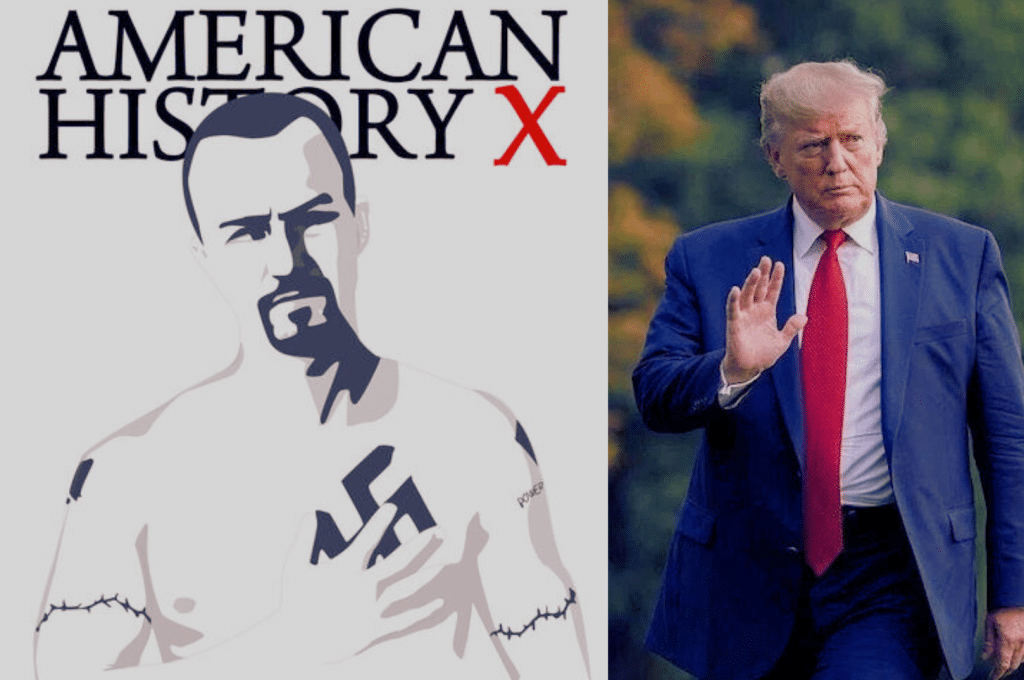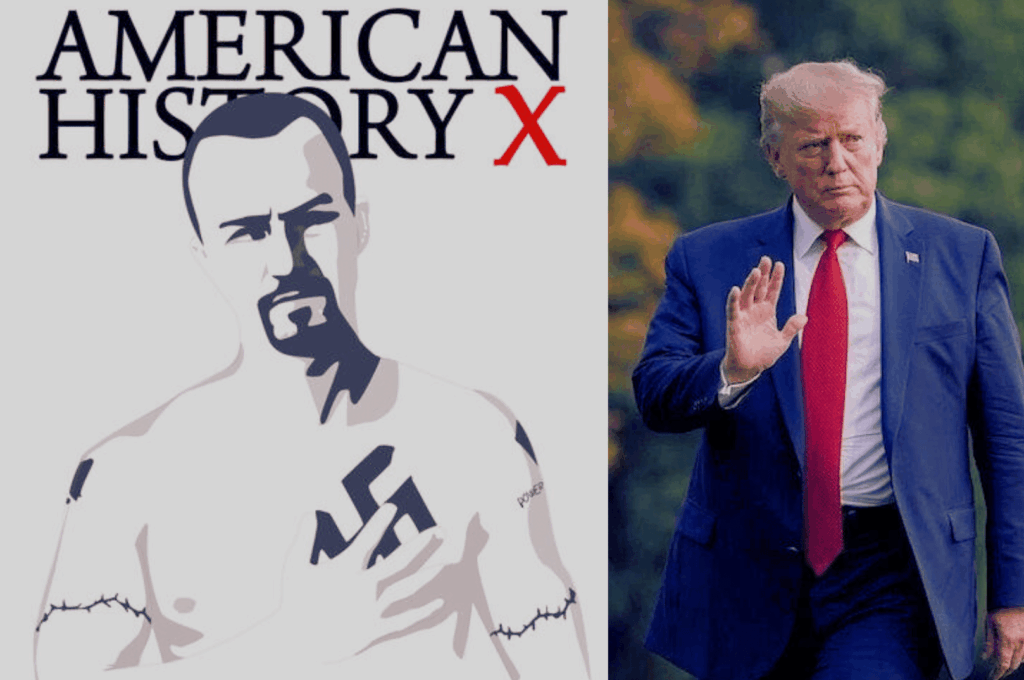
Linking the film to Trump’s return isn’t meant to suggest a direct connection between them, but rather to highlight a longstanding sentiment among segments of the American public—one that has felt repressed and has now been galvanized with powerful nationalistic overtones.
In the 2024 U.S. presidential election, Donald Trump achieved a decisive victory over the current U.S. Vice President Kamala Harris. This triumph not only returned Trump to the White House but also marked a significant political comeback, as he became the second President in U.S. history, after Grover Cleveland, to serve non-consecutive terms. Trump’s campaign effectively mobilized support from white rural, working-class, and social conservative voters, as well as ethnic minorities, contributing to his substantial electoral success. Notably, the 2024 election is believed to be the most expensive in U.S. history, with total spending reaching approximately $15.9 billion, surpassing the previous record of $15.1 billion set in 2020.
More importantly, Trump’s return represents the persistence of the probably long-existed populist and nationalist ideals in the American political landscape, especially among certain segments of the American public whom Trump claimed as “the forgotten men and women of our country” that he would never forget in his 2016 victory speech. The vow he made seems to have paid off in a remarkable way. In his latest victory speech on November 06, 2024, he credited his victory to “the most unified coalition” which he described as “a historic realignment.” Instead of being discarded, “the forgotten men and women” became broader and more united in Trump’s latest telling.
In Trump’s ideology, the transformation of the “forgotten men and women” he championed in 2016 into what he now calls the “most unified coalition” of 2024, united by a “common core of common sense,” may reveal layers of deep socio-cultural meaning. For example, this shift may go beyond political rhetoric, suggesting a bold vision of uniting diverse societal groups through straightforward, shared principles that resonate with more traditional and conservative values like fairness, resilience, and patriotism. Trump’s renewed focus on this coalition may also signal his belief in a potential societal realignment that transcends traditional party lines, aiming to unite Americans around enduring values and to forge a broad-based movement grounded in widely resonant principles, challenging the probably “overly” progressive ones he may view as “eroding” a healthy American society. The election result may also suggest that the so-called “forgotten” are no longer silent; they are, in fact, more energized, working collectively to put Trump back in the White House. This may raise a question: Who, fundamentally, are these “forgotten men and women” in a broad sense, and what drives their “loyalty,” especially to Trump?
In the powerful 1998 crime film American History X, directed by Tony Kaye, they might have already been described as the “decent, hardworking Americans” whom Derek (played by Edward Norton) passionately defends—a reflection of the typical rhetoric surrounding immigration and the rights of American citizens.
Let me quote part of the speech in the film Derek made before he led a crowd to storm a Korean-owned grocery store:
“We need to open our eyes. It’s over two million illegal immigrants bedding down in this state tonight. This state spent three billion dollars last year on services for those people who had no right to be here in the first place! Three billion dollars! Four hundred million dollars just to lock up a bunch of illegal immigrant criminals who only got into this country because the…INS decided it’s not worth the effort to screen for convicted felons…Our border policy is a joke. So, is anybody surprised at the south of the border they’re laughing at us? Laughing at our laws? … There’s nothing funny going on here. This is about your life and mine. It’s about decent, hardworking Americans falling through the cracks and getting the shaft, because the government cares more about the constitutional rights of a bunch of people who aren’t citizens of this country. On the Statue of Liberty, it says, ‘Give me your tired, your hungry, your poor.’ Well, it’s Americans who are tired and hungry and poor! And I say until you take care of that, close the … book! Coz we’re losing. We’re losing our right to pursue our destiny. We’re losing our freedom, so that a bunch of … foreigners can come in here and exploit our country!”
I’m confident that, even without an exhaustive list of examples, we will look back on this speech from the 1998 film with a powerful sense that history has repeated itself. For example, when kicking off his 2016 presidential campaign, Trump disparaged Mexican immigrants by saying, “They’re bringing drugs. They’re bringing crime.” In February 2019, Trump claimed that “working-class Americans are left to pay the price for mass illegal migration.” In October 2024, Trump criticized the Biden-Harris administration for importing “an army of illegal alien gang members and migrant criminals from the dungeons of the Third World” to “prey upon innocent American citizens.”
The film American History X remarkably explores protagonist Derek’s journey from white supremacist hatred to an eventual awakening. However, the quote from Derek’s speech referenced in this article does intend to prove an immediate connection across history. Rather, it underscores a broader issue: the underlying socio-cultural currents that may have contributed to the somewhat “surprising” return of Donald Trump, meaning that the socio-cultural themes in American History X may just echo Trump’s rhetoric, both exposing a persistent undercurrent of American anxieties around immigration, identity, and economic security. These concerns, often rooted in economic inequality and social shifts, have shaped a populist sentiment that resonates across decades in America, when a long-standing segment of society has felt forgotten, abandoned, victimized, and repressed for decades. Despite the apparent strength and economic prosperity of the country, deep-seated fears linger among those who have lost faith in their prospects—fears about economic security, social cohesion, and preserving American identity, culture and way of life in their genuine sense. Both the film and Trump’s political messaging spotlight the critical issue of America’s ongoing struggle for control and security, framed as a decades-old, internal battle against perceived external influences.
Looking at the historical logic above, Trump’s return and his ambitions, such as “Make America Great Again,” carry a strong nationalist tone that resonates with the “decent, hard-working Americans” depicted in the 1998 film. In the meanwhile, judging by his latest victory speech, Trump appears intent on integrating these long-overlooked groups into the broader base of public opinion. After all, the America he faces today is not solely defined by his past and sometimes quite narrow nationalistic rhetoric—it is, in fact, a deeply diverse nation. In his victory speech, Trump said, “But we have to, we have to let them come back in, but they have to come in legally.”
In sum, the socio-cultural themes in American History X and the rhetoric surrounding Trump’s return both reflect persistent American anxieties about immigration, national identity, and economic security—issues that resonate with an enduring populist undercurrent probably for decades. Trump has skillfully tapped into these deep-rooted sentiments, energizing his base and revitalizing a coalition that feels increasingly sidelined. His resurgence signifies not just a political comeback, but potentially the start of a transformative era in U.S. politics, marked by a shift towards more explicitly “American” ideals centered on nationalism and economic protectionism.
Moreover, as Trump steers this populist wave, long-standing grievances among the “decent, hard-working Americans” at least dating back to the early 1990s, may now be voiced with significant consequences. For example, this re-energized base could propel substantial shifts in U.S. domestic and foreign policies, including stronger stances on immigration and heightened skepticism towards international multilateralism that however has been firmly embraced in the Western liberal order. Hence, the possible ripple effects are likely to extend beyond U.S. borders, potentially reshaping America’s role in the international arena and recalibrating its alliances. The direction of U.S. policies towards its traditional allies and its strategic competitors like Russia and China, may increasingly reflect this intensified focus on safeguarding more “concentrated” national interests, heralding a complex and possibly volatile period for both regional and global relations.
Kai Jin earned his Ph.D. from Yonsei University in 2013. He is a non-resident scholar at the Sigur Center for Asian Studies, Elliott School of International Affairs, George Washington University and is currently a visiting scholar at Yale Law School Paul Tsai China Center, Yale University. He is the author of Rising China in a Changing World: Power Transitions and Global Leadership (Palgrave Macmillan, 2017).
The views expressed in this article represent those of the author(s) and not those of The Carter Center.

